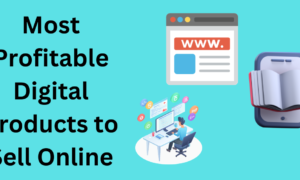Exiting an online business is a pivotal moment for any entrepreneur. Whether moving on to new ventures or cashing in on your hard work, executing the sale like a pro requires careful planning and execution. Here’s a comprehensive guide to crafting your exit strategy and selling your online business successfully:
Prepare Your Business for Sale:
Preparing your business for sale is critical in maximizing its value and attracting potential buyers. First, it’s essential to clean up your financial records to ensure accuracy and thorough documentation. This involves organizing income statements, balance sheets, cash flow statements, and any other financial documents. Buyers will scrutinize these records to assess your business’s health and profitability, so transparency and accuracy are paramount.
Secondly, gathering and organizing all legal documents related to your business is crucial. This includes contracts, agreements, licenses, permits, and intellectual property rights. Having these documents readily accessible demonstrates professionalism and can expedite the due diligence process, instilling confidence in potential buyers.
Lastly, optimizing your operations is critical to making your business more attractive to buyers. This may entail streamlining processes, improving efficiency, and reducing overhead costs. By identifying and addressing inefficiencies or areas for improvement, you can enhance your business’s overall value proposition. Potential buyers are more likely to be attracted to a well-oiled machine that promises a smooth transition and future growth opportunities.
Preparing your business for sale involves ensuring your financial records are accurate, organizing all legal documents, and optimizing operations to maximize attractiveness to potential buyers. This proactive approach not only facilitates a smoother sales process but also enhances the perceived value of your business, ultimately leading to a more successful sale.
Evaluate Your Business’s Value:
Conducting a comprehensive valuation is essential in determining the true worth of your online business. This involves analyzing various factors, including revenue, profitability, growth potential, customer base, and industry trends. By meticulously examining these aspects, you can better understand your business’s market position and potential for future success.
Additionally, seeking professional assistance from a business broker or valuation expert can provide valuable insights and ensure an accurate assessment of your business’s value. These experts possess the expertise and experience necessary to navigate complex valuation methodologies and consider nuanced factors that may impact your business’s worth.
Their impartial perspective can help uncover hidden value and identify areas for improvement, ultimately maximizing the attractiveness of your business to potential buyers. In essence, a thorough valuation, coupled with professional guidance, is crucial in accurately determining the value of your online business and facilitating a successful sale.
Identify Potential Buyers:
Identifying the target audience for your business sale is a strategic step that involves assessing various potential buyers. These may include competitors seeking to expand market share, investors looking for profitable ventures, entrepreneurs interested in a turnkey operation, or larger companies aiming for strategic acquisitions. Understanding the motivations and objectives of these different buyer groups is crucial in tailoring your sales approach effectively.
Conducting thorough research on potential buyers lets you gain insights into their goals, preferences, and financial capabilities. By analyzing past acquisitions, investment strategies, and industry trends, you can better align your business’s value proposition with potential buyers’ needs and expectations. This research helps you tailor your marketing efforts, negotiation tactics, and deal structures to appeal to specific buyer segments, increasing the likelihood of a successful sale.
Ultimately, by accurately identifying the target audience for your business sale and conducting in-depth research on potential buyers, you can position your business strategically and maximize its appeal in the market, leading to a smoother and more lucrative sales process.
Create a Comprehensive Sales Package:
Creating a detailed sales memorandum is essential for effectively communicating your business’s value to potential buyers. This document is a comprehensive overview, highlighting key aspects such as the business’s history, financial performance, market position, and growth opportunities. By including pertinent information in the memorandum, you can provide potential buyers with a clear understanding of what your business has to offer.
In addition to narrative descriptions, relevant financial documents, operational metrics, and marketing materials must be included. Financial documents such as income statements, balance sheets, and cash flow statements offer transparency into the business’s financial health and performance. Operational metrics provide insights into efficiency, productivity, and scalability, while marketing materials showcase the brand’s strengths, customer base, and market presence.
Combining qualitative and quantitative information in the sales memorandum gives potential buyers a comprehensive picture of your business, allowing them to assess its value and potential accurately. This transparency and thoroughness instill confidence in potential buyers and streamline the due diligence process, facilitating smoother negotiations and ultimately leading to a successful sale.
Market Your Business Effectively:
Promoting your business sales across multiple channels is crucial for reaching a diverse pool of potential buyers. Leveraging online marketplaces, social media platforms, industry networks, and business brokerages widens your reach and increases visibility within relevant communities. Tailoring your marketing efforts ensures that your message resonates with your target audience’s specific interests and preferences, increasing the likelihood of attracting qualified buyers who are genuinely interested in your business.
While marketing your business, it’s essential to prioritize confidentiality to safeguard sensitive information and prevent disruption to daily operations. Confidentiality agreements and controlled dissemination of information help protect proprietary data and maintain the trust of employees, customers, and stakeholders. By carefully managing confidentiality, you minimize the risk of competitors exploiting vulnerabilities and ensure a smooth transition throughout the sales process.
Balancing effective promotion with confidentiality measures is key to generating interest from qualified buyers while safeguarding your business’s integrity and reputation. This strategic approach not only maximizes the chances of a successful sale but also preserves the value and continuity of your business during the transition period.
Negotiate the Deal:
Negotiation with potential buyers is a pivotal stage in selling your business, where reaching a mutually beneficial agreement is paramount. Prioritize achieving favorable terms, encompassing aspects like the sale price, payment structure, transition period, and any contingencies or warranties. Flexibility is key, as both parties seek a balance between their respective interests and goals.
Engaging legal and financial advisors can provide invaluable support throughout the negotiation process. These professionals offer expertise in assessing the fairness and legality of proposed terms, ensuring your interests are protected and the deal aligns with legal requirements. Their insights help navigate complex issues, such as tax implications or contractual obligations, mitigating potential risks and enhancing the overall outcome of the negotiation.
Maintain open communication and a collaborative mindset during negotiations to foster a constructive atmosphere. Strive for transparency and clarity, addressing any concerns or uncertainties promptly. By approaching negotiations with diligence, flexibility, and expert guidance, you increase the likelihood of reaching a favorable agreement that satisfies both parties and facilitates a smooth ownership transition.
Close the Sale:
After reaching an agreement with the buyer, finalizing the sale contract and transferring ownership of the business requires meticulous attention to legal and financial details. Collaborating with legal and financial professionals is crucial in drafting and reviewing the sale contract to ensure its accuracy and completeness. This contract should encompass all terms agreed upon during negotiations, including the sale price, payment structure, and any contingencies or warranties.
Compliance with legal and regulatory requirements is essential to avoid potential setbacks or complications. This involves obtaining necessary licenses, permits, or intellectual property rights and ensuring proper transfer to the new owner. Thorough due diligence mitigates legal risks and ensures a seamless transition of ownership.
Effective communication with employees, customers, and other stakeholders is vital for maintaining trust and minimizing disruption during transition. Transparency about the sale and its implications fosters a supportive environment, alleviating concerns and facilitating a smooth handover of responsibilities. By prioritizing clear communication and compliance with legal requirements, you pave the way for a successful sale and ensure the business’s continued success under new ownership.
Transition Period:
Supporting the new owner during the transition period is essential for ensuring a smooth handover of operations and maintaining the business’s continuity. This involves providing comprehensive assistance and guidance to help them effectively acclimate to their new role. Documenting key processes and procedures is critical in facilitating this transition, as it provides the new owner with valuable insights into the business’s day-to-day operations. Clear documentation enables them to navigate tasks and make informed decisions with confidence.
Staying involved as needed demonstrates your commitment to the business’s success under its new ownership. By remaining accessible and responsive to inquiries or challenges that may arise, you can address any issues promptly and minimize disruption to operations. Your continued involvement also fosters a sense of trust and collaboration between you and the new owner, enhancing the likelihood of a successful transition.
Ultimately, by providing ongoing support, documenting key processes, and staying involved as needed, you can help ensure a seamless ownership transition and maximize the value of your online business during the sale process.
Conclusion
By meticulously following these steps and conducting the sale of your online business with professionalism and diligence, you can optimize its value and guarantee a smooth exit strategy. This thorough approach ensures that all aspects of the sale are handled efficiently, from preparation and marketing to negotiation and transition. Executing the process with care and attention to detail increases the likelihood of achieving the best possible outcome for your business sale.



























